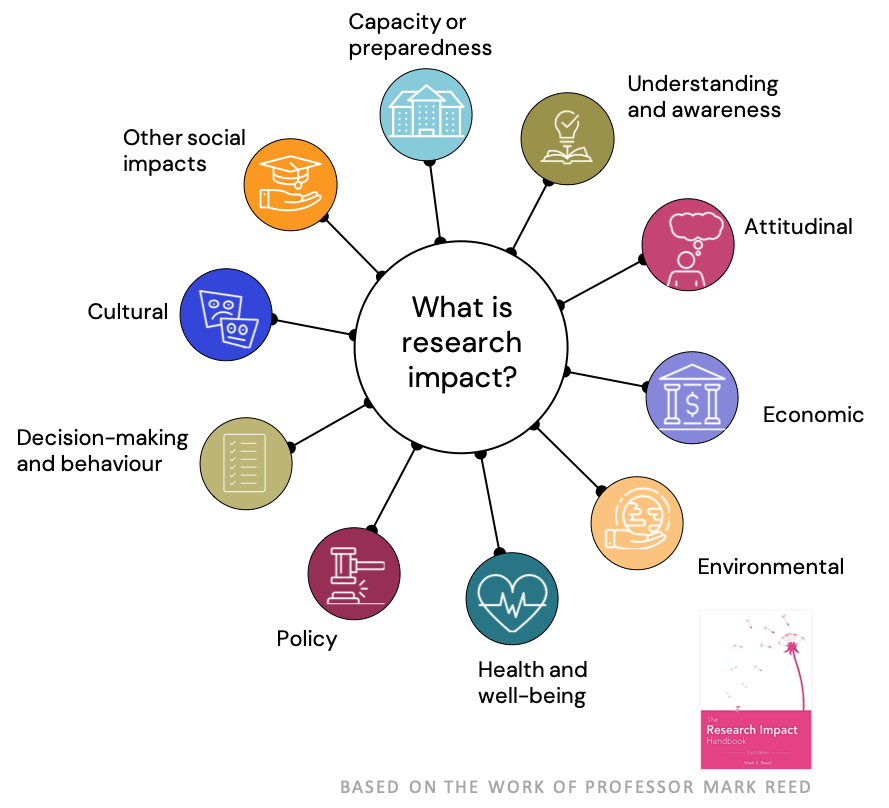Welcome to our series of 3 blogs exploring what research impact is, why it matters, and how it is achieved. In part 1 today, we’re looking at what research impact is.
You will find several definitions of impact from funders and universities:
- The likelihood for the project to exert a sustained, powerful influence on the research field(s) involved. (National Institutes of Health)
- The potential [for your research] to benefit society and contribute to the achievement of desired society outcomes. (National Science Foundation)
- An effect on, change or benefit to the economy, society, culture, public policy or services, health, the environment or quality of life beyond academia. (UK Research Excellence Framework)
- The contribution that research makes to the economy, society, environment or culture, beyond the contribution to academic research. (Australian Research Council)
- Proveable benefit of research in the ‘real world’. (Julie Bayley, Director of Research Impact Development, University of Lincoln)
While there are some subtle differences, they ultimately coalesce around demonstrable and beneficial change in behaviours, beliefs and practices.
What research impact is not
The real world part is key. Traditionally, assessment of impact has focused too much on academic impact. Whereas true impact is measured by indicators of change outside universities and research institutions, in the real world.
Over the years I’ve found myself summing it up for people with this simple phrase:
More people • Benefiting from research • More quickly
Types of impact
Having defined impact at this high level, it’s then possible to define a number of types of impact.

- Download slides containing this and other graphics from the research impact series by Kudos
Professor Mark Reed has analysed case studies from around the world and proposes ten types of impact:
- Understanding and awareness – meaning your research helped people understand an issue better than they had before
- Attitudinal – your research helped lead to a change in attitudes
- Economic – your research contributed to cost savings, or costs avoided; or increases in revenue, profits or funding
- Environmental – benefits arising from your research aid genetic diversity, habitat conservation and ecosystems
- Health and well-being – your research led to better outcomes for individuals or groups
- Policy – your research contributed to new or amended guidelines or laws
- Other forms of decision-making and behaviour impacts
- Cultural – changes in prevailing values, attitudes and beliefs
- Other social impacts –such as access to education or improvement in human rights
- Capacity or preparedness – research that helps individuals and groups better cope with changes that might otherwise have a negative impact.
I can thoroughly recommend Mark Reed’s book, if you’d like to learn more about each of these areas and how to understand the potential outcomes of your research in each area.
Getting started with impact
The things you do to communicate and disseminate your research are the vital “missing link” between the research that you do and the impact you hope to achieve. At Kudos we have spent 10 years helping researchers develop impact through better research communication and dissemination. Get started now – you can register for free and then pick the tools and services you need.


